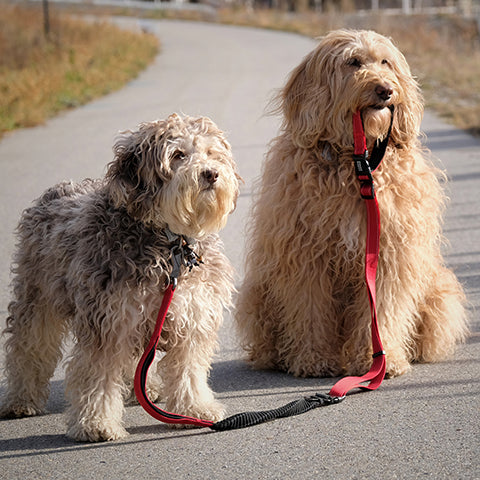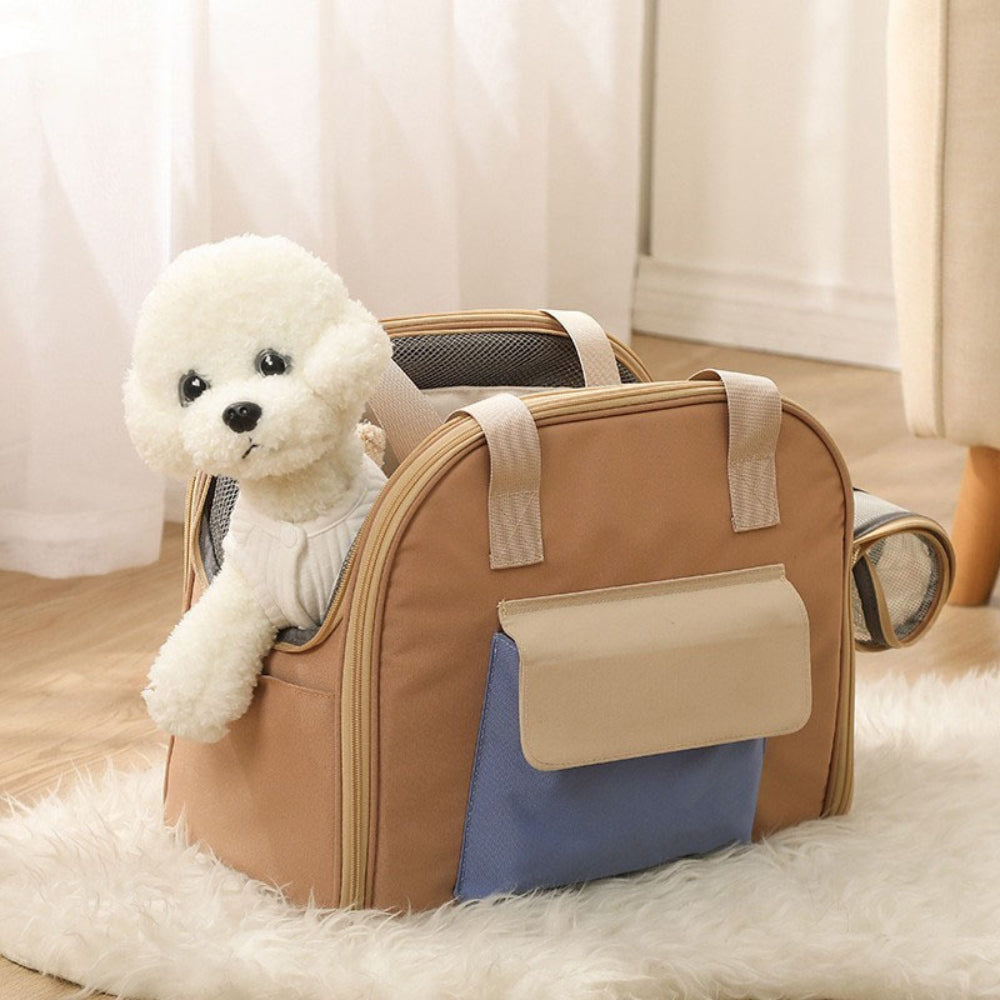Introduction
As pet owners, we often wonder why our beloved dogs seek refuge under the bed. It's a common behaviour that can leave us puzzled and concerned. In this blog post, we will delve into the reasons behind this peculiar behaviour and shed light on why dogs choose to hide under the bed. Understanding the motivations behind this behaviour is key to providing our furry friends with the care and support they need.
Instinctual Behaviours
Dogs have instinctual behaviours that drive them to seek shelter and safety. In the wild, dogs are den animals, and the space under the bed can mimic the security of a den-like environment. Providing a cosy hiding spot, such as a donut dog bed, can mimic the comfort and security of a den, giving your dog a similar sense of safety and protection. It provides them with a secluded and enclosed space where they feel protected and can retreat from potential threats.

Cute Bear Ears Removable Dog House
Fear and Anxiety
Fear and anxiety are common reasons why dogs hide under the bed. Loud noises, such as thunderstorms or fireworks, can trigger a fear response in dogs, leading them to seek comfort and security in a confined space. Other anxiety-inducing situations, such as the presence of unfamiliar people or animals, can also prompt dogs to hide under the bed as a coping mechanism.
Noise Sensitivity
Many dogs are sensitive to loud noises, which can be overwhelming for them. Hiding under the bed allows them to escape the noise and find solace in a quiet and secure space. If your dog consistently seeks refuge under the bed during loud events, it's important to address their noise sensitivity and help them develop coping strategies.
Past Traumatic Experiences
Dogs that have experienced past traumas may exhibit hiding behaviour as a result. Traumatic events, such as abuse or neglect, can leave lasting emotional scars on dogs, causing them to seek safety under the bed. Building trust, providing reassurance, and working with a professional trainer or behaviourist can help these dogs overcome their fears and gradually feel more secure.

Medical Issues
In some cases, dogs may hide under the bed due to medical issues. Pain, discomfort, or illness can lead to a dog's desire to retreat and find a quiet place to rest. If you notice a sudden change in your dog's hiding behaviour, it's important to consult a veterinarian to rule out any underlying health conditions that may be causing their distress.
Creating a Safe Space
To address the hiding behaviour and provide a sense of security for your dog, it's crucial to create a safe space in your home. Consider placing a dog crate bed in a designated crate or offering a soft donut dog bed in a quiet corner of your home. These alternatives provide a comfortable and secure retreat, helping your dog feel relaxed and at ease. Gradually introduce positive reinforcement techniques to help your dog associate these spaces with comfort and relaxation. Additionally, desensitization techniques can be used to gradually expose your dog to triggers that may cause fear or anxiety, helping them build confidence over time.

Conclusion
Dogs hiding under the bed is a behaviour rooted in instinct, fear, anxiety, past traumas, or medical issues. By understanding the motivations behind this behaviour, we can provide our canine companions with the care and support they need. Creating a safe and comforting environment, addressing fear and anxiety triggers, and seeking professional guidance when necessary are essential steps in helping our dogs feel secure and loved. Remember, each dog is unique, and patience, understanding, and compassion are key in supporting them through their hiding behaviours.




